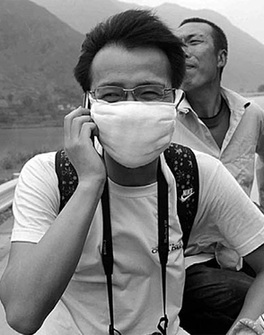Society
'Relatives hold on in search for missing'
By Wang Huazhong (China Daily)
Updated: 2010-08-16 08:04
 |
Large Medium Small |
Editor's Note: China Daily sent seven reporters and photographers to Gansu after the landslide in Zhouqu county on Aug 8. The initial batch arrived just 19 hours after the tragedy and was among the first on the scene; a second group arrived three days later. Here, three of our journalists - Peng Yining, Hu Yongqi and Wang Huazhong recount their experiences in covering the disaster.

ZHOUQU, Gansu - It was a long drive from Lanzhou, the Gansu capital, to the disaster zone. After choosing to take the county route (my colleagues traveled on the trunk road and we wanted to cover both experiences), it was 14 hours of punishing rough terrain.
As we passed through a checkpoint manned by armed police from Sichuan province, I met my first survivor, Zhao Baojun. The 28-year-old, who wore a red Communist Party of China pin on his jacket, hitched a ride with us to Zhouqu.
"I can't stay and rest; I must return to help out," he said.
Although I initially regretted not being among the first team of China Daily reporters to arrive at the scene, as we approached the worst-affected areas my mind was instead filled with a sense of sorrow.
The panic, devastation and chaos showed on the face of every survivor.
Hordes of people carrying bags of instant noodles and bottled water were filing into the area by foot or crowded on the back of mini pickup trucks.
I tried to get closer to talk to people who had arrived to find missing relatives but was stopped by a guard who warned me "it's too dangerous".
|
Special Coverage: | ||
Related readings: China mourns for Zhouqu mudslide victims China mourns for Zhouqu mudslide victims Zhouqu in mourning Zhouqu in mourning Businesses in mudslide-hit Zhouqu resume Businesses in mudslide-hit Zhouqu resume Newborn baby brings hope to mudslide-hit Zhouqu Newborn baby brings hope to mudslide-hit Zhouqu |
Before long, I was wading through water and dodging rescuers and residents on narrow planks of wood atop yellow pools. Walking on some of the roads felt strangely like walking on muffins.
When I got to the flattened Yueyuan village, which lies in the Sanyan valley, my boots were sprayed with disinfectant as part of the anti-epidemic measures. Looking down, the sludge surface was like a brown scar - only the victims know how deep the wound goes.
On Saturday, survivors, soldiers and the relatives of 500 people still missing continued to dig for bodies. Finding loved ones is a must.
"I won't feel right until I find them," said Moukan Bujian, 28, who added that the disaster had already claimed his aunt, uncle and three sisters between the ages of 18 to 22.
A rescuer told me that finding the missing is becoming more difficult. As the mud washed multi-story buildings up to 6 meters away, many victims had been pushed too far or buried too deep. Recent rain has also complicated efforts.
Yang Xiaoyan, 18, said she has waited above the spot where her family home had been since Aug 8 she had still seen no sign of her father, grandparents, stepmother and three sisters.
"All I can do is wait. I don't know what I will do after burying my father," said the teenager, who explained that her mother and another sister were also killed in a different house.
While heavy machinery is used to puncture holes in the mud, others are being used to clear roads and unblock waterways.
Some relatives of the missing burn incense and mingzhi (Chinese paper money for the dead), while one family poured liquor into the fire as a mark or respect. Coupled with the disinfectant sprays, the smoke from the various fires makes for a strange smell.
Despite forecasts of rain suggesting further problems in the future, rescuers and relatives are holding on.
Although Yang said she feels the county holds nothing but painful memories for her, she said she will stay to help care for her aunt's daughters.
"Of course," she said, "this is still my home."
